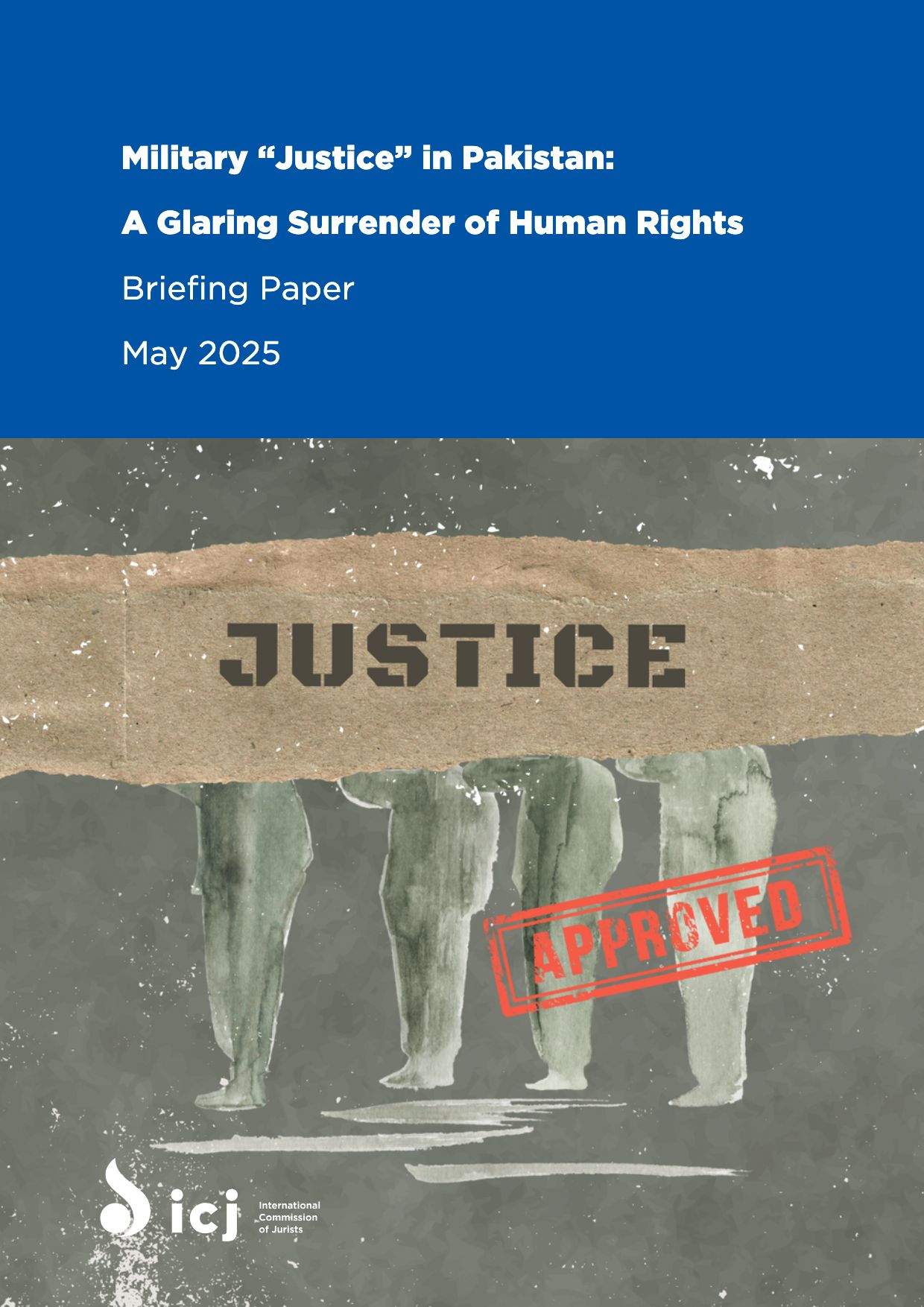In a briefing paper released today, the ICJ found that the military trials of 105 civilians for offences in relation to violence surrounding the arrest of former Prime Minister Imran Khan in May 2023 fall afoul of core rule of law and human rights principles.
The 105 civilians were tried and convicted pursuant to the Pakistan Army Act, 1952, and the Official Secrets Act, 1923, for offences such as espionage, “interfering with officers of the Police or members of the armed forces”, and unauthorized use of uniforms. They were sentenced to imprisonment ranging from one to ten years.
The publication of the ICJ’s analysis comes as the Supreme Court of Pakistan yesterday on 5 May concluded hearings in an intra-court appeal against the judgment of another bench of the Court, which in October 2023 had declared the trial of civilians by military courts was per se a violation of the right to a fair trial by an independent judiciary.
“All eyes are now on the Supreme Court to reverse the militarization of justice in the country and reinforce the independence of the judiciary and respect for human rights,” said Ian Seiderman, ICJ’s Senior Legal and Policy Director.
The ICJ stresses the trial of civilians by military courts is incompatible with the fair administration of justice and breaches Pakistan’s international legal obligations.
Under international human rights law, Pakistan must ensure that people charged with criminal offences are tried by competent, independent, and impartial courts established by law in proceedings that comply with international fair trial standards.
Proceedings before Pakistani military courts fall well short of national and international standards requiring fair trials before independent and impartial courts:
- Judges are part of the executive branch of the State and continue to be subjected to military command;
- The right to appeal to civilian courts is not available;
- The right to a public hearing is not guaranteed;
- A duly reasoned, written judgment, including the essential findings, evidence and legal reasoning, is denied; and
- The procedures of military courts, the selection of cases to be referred to them, the location and timing of trial, and details about the alleged offences are kept secret.
The ICJ has urged Pakistan to undertake a comprehensive review of its laws, policies and practices in the administration of justice, with a view to ensuring that military courts only have competency to try military personnel for exclusively military offences. Pakistan should also ensure military courts in no manner have jurisdiction over civilians, including for security-related offences, and military courts should, in law and practice, meet all fair trial standards in accordance with Article 14 of the International Covenant on Civil and Political Rights (ICCPR).
Background
Military courts tried 105 civilians for conduct related to the violent demonstrations in various parts of Pakistan on 9 and 10 May 2023. Twenty civilians, who were sentenced to one-year imprisonment, were released in April 2024 after their remaining sentence was remitted.
On 21 December 2024, the Inter-Services Public Relations (ISPR) announced the convictions and sentences of 25 people for their involvement in violent attacks on military-related installations during the nationwide demonstrations on 9 May 2023. The convicts were sentenced to two to ten years’ imprisonment.
On 26 December 2024, the ISPR announced the convictions and sentences of the 60 remaining civilians. Like the first phase, the convicts were sentenced to two to ten years’ imprisonment.
On 2 January 2025, ISPR announced in a statement that the “mercy” petitions of 19 convicts had been accepted on “humanitarian grounds” and their remaining sentences were remitted.
Strikingly, all 105 civilians tried by military courts for the 9 and 10 May events were convicted – a 100 percent conviction rate: 16 civilians were sentenced for 10 years’ imprisonment, 11 for nine years’ imprisonment, one for eight years’ imprisonment, six for seven years’ imprisonment, ten for six years’ imprisonment, one for five years’ imprisonment, 13 for four years’ imprisonment, three for three years’ imprisonment, 24 for two years’ imprisonment, and 20 for one-year imprisonment.
Download
The full report can be downloaded here.





